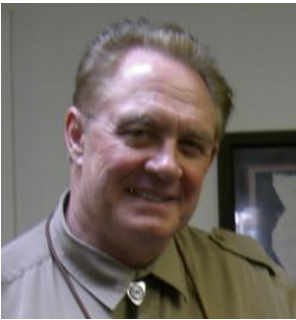The ABIP – Can It Be Saved? Part 3 – Good Intentions Corrupted

[March 2019] Over the past 20 years, thousands of stations have been inspected under the voluntary Alternate Broadcast Inspection Program (ABIP). However, Ken Benner relates how a simple program grew into something else.
My recent columns appearing in the BDR have really developed interest in my experiences with the ABIP and how we might improve, define, and address problems found during the course of the program’s history.
Good Idea, Poor Execution
As originally presented in mid-1995, the program failed to address serious potential problems that could have quickly torpedoed it.
Some questions linger even to this day. For example just what do we inspect for, and what are the actual guidelines to determine the failure for stations’ inspections.
This problem became clear when I was advised to simply pass or fail, and advise the stations to contact their legal counsel if I failed them. Smell the rat yet?
Almost Perfect Not Enough?
It is most certainly not rocket-science to realize there is not a single station in the country that is 100% compliant with every nit-picking FCC regulation in the book.
So do we fail a station because someone forgot to log an EBS test from two years ago, or they misfiled a complaint letter from the public?
How about if they are lacking a “issues and program” report from five years ago, or the station is operating on an old temporary authorization for some major improvement?
I actually confronted these situations the first time I inspected the stations in Alaska where, according to the broadcasters’ association contract with the FCC, a “violation” was strictly defined as grounds to fail a station. The inspector then was to return for a second inspection after being advised the “violation” has been corrected.
Sudden Expense
For myself – or another inspector – to return to Alaska to re-inspect any station would require a minimum of $2,500 in travel, lodging, and wages.
Obviously, the program was seriously flawed in this respect.
I discussed these concerns with those in attendance for my first seminar, asking for suggestions on how we might avoid these very costly re-inspections. It was at this point that I suspected the program was not entirely as promoted.
Common Sense Solution
One Alaska station manager called me aside and asked if I understood affidavits.
I responded with “I’ve long been a Notary Public and have notarized many of them.” Bingo! The problem for “failed stations” was identified, the problem was resolved!
It really was fairly simple.
Most stations employ a Notary for supporting documentation for air-time purchases whether paid by advertisers or covered by suppliers (coop buys). We decided to prepare a blank affidavit that would list all items that were found noncompliant along with the applicable FCC regulation number.
Once the station completed the necessary compliance corrections, the licensee, manager, or chief operator would complete the notary process, forward it to the inspector by fax or mail and, upon receipt, the inspector would complete and sign the “pass” certificate and mail it to the station.
Hundreds of thousands of dollars were saved for many stations that my wife and I inspected but were unable certify while on site.
Praise and Condemnation
On my office wall I have three award citations for my triennial visits where I presented my Power Point Presentations for the Alaska Broadcasters’ Association conventions – with special appreciation for this simple little process we devised.
Nevertheless, I was severely criticized by the “coordinator” of the program (whom I assisted in developing the program as described). The fees – especially re-inspection fees – received from Alaskan stations were not enough for him.
Furthermore, I learned some associations had charged substantially for members and triple that amount for non-members – not including re-inspection fees. But it was when I discovered one association charging $3,300 to inspect a non-member TV station for one of my four-hour inspection visits that I realized the ABIP had developed serious financial flaws of which I wanted no part.
For some, obviously greed has no limits.
At this point it was obvious I could no longer associate with them.
Next time, we will discuss how all of this affects you – and how you can keep your stations free of violations and fines.
– – –
Ken Benner, CBRE-Life, NARTE-Master-Life, has served as an inspector in the FCC’s Alternate Broadcast Inspection Program for the past 25 years, as well as the official pancake turned at breakfast meetings.
He does not claim to be a lawyer, nor play one on TV.
Contact Ken at:bennerassociates@me.com
